Guide: Jewelry Products Photography!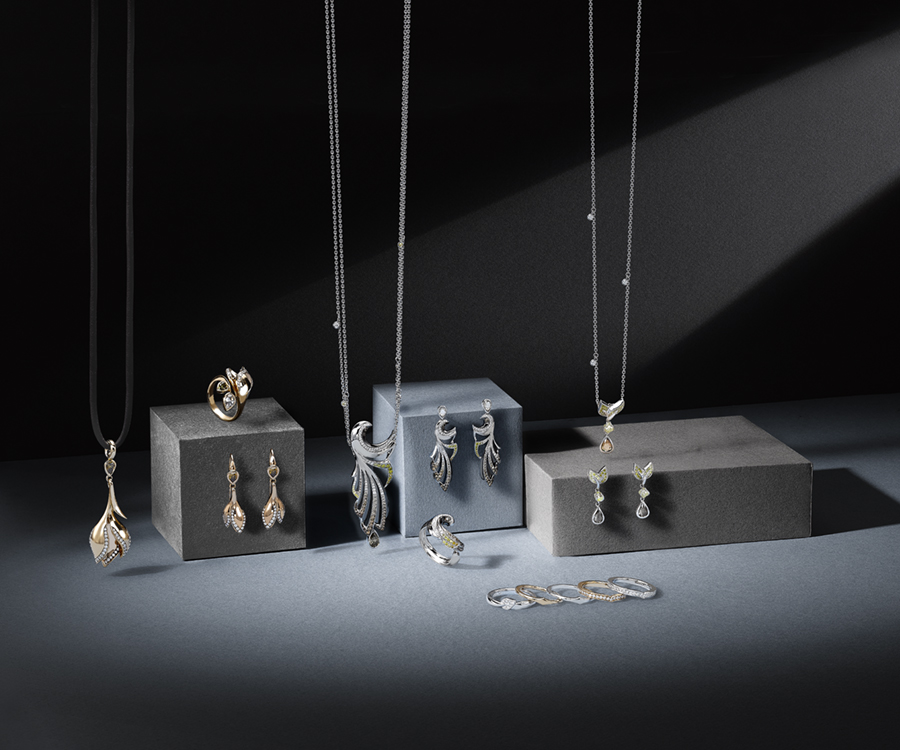
Do you often wonder how to photograph Jewelry that makes it look truly stunning and attractive? Are you curious to understand why Jewelry looks extra spectacular and shimmering in catalogs and commercials than in real life? Read Our Complete Step by Step Guide about Jewelry Photography.
When it involves photographing Jewelry, it isn’t as easy because it sounds until the photographer understands and acquires the abilities to taking great pictures of them including sharpness, lighting, and accurate exposure. Sounds complicated? But don’t worry. Photographing Jewelry may well be a chunk of cake just by managing a fast & effective setup and camera manual shooting mode. From mastering a studio setup to establishing an efficient background here are few steps that may facilitate your photography skills.
-
Clean Jewelry and Background-
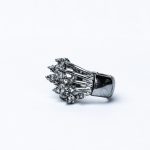 Of course, clean Jewelry with a neat background leaves a drastic impact on photography aspects. This can be a comprehensible step to taking beautiful Jewelry photos. Also, ensure that Jewelry items are well polished. Sometimes, illusions that may not visible to the optic are revealed once it blew up within the highly-detailed images taken by the photographic camera.
Of course, clean Jewelry with a neat background leaves a drastic impact on photography aspects. This can be a comprehensible step to taking beautiful Jewelry photos. Also, ensure that Jewelry items are well polished. Sometimes, illusions that may not visible to the optic are revealed once it blew up within the highly-detailed images taken by the photographic camera.
Meanwhile, if the Jewelry doesn’t need some serious cleaning, simply remove dust by rubbing down with soft, moist cotton or microfiber fabric before the shoot can add shine to jewels. Wearing cotton gloves to avoid fingerprint marks is additionally an honest option. The same rules apply to the background. A clean and spotless background effects image quality. A standard textile or any tool may be accustomed to cleaning the background. Remember your clan Jewelry and background directly effects image quality.
-
Natural Light for Natural Jewelry Photography-
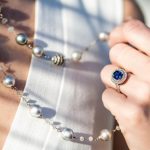 Processing stuff’s excessive lighting or flashes is good until one is objectifying the products. While coping with natural gems why not just placed thoughts on natural lights?
Processing stuff’s excessive lighting or flashes is good until one is objectifying the products. While coping with natural gems why not just placed thoughts on natural lights?
Taking a photograph of shiny Jewelry using your camera’s flash isn’t always an honest idea! By using high flash the Jewelry will reflect bright light, leaving product covered in white light spots with harsh shadows within the background.
As long as you don’t inter-communicate a skilled photographer and own a high professional studio, use sunlight as a natural studio for effective output. Confine mind that with natural lighting, you’re using the sun as a secondary light so place your Jewelry near a window during the daytime to click effective pictures.
If you wish a built-in flash, bright yellow sunlight will surely create reflections and harsh shadows which may disappoint your will, so here you’ll want to diffuse the sunshine. Instead, you’ll be able to try covering the window with a white sheet or piece of paper or the other color paper to alter the color of the sunshine.
-
Stabilize Camera is the Boss-
To ensure that your images start-up tack-sharp with professional quality use a tripod and if possible a foreign shatter release. This can facilitate you to stabilize your camera. These two will Not only eliminate camera shake, but it’ll also help keep your Jewelry framed within the same way so you’ll be able to have a neater time adjusting your focus and modifying your lighting.
-
Macro Lens the Sport Changers in Jewelry Photography-
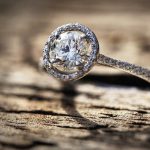 Often wonder why your Jewelry isn’t as attractive in pictures as in real or as is that the pictures you surf on the internet? However, you using an advanced camera the problems may well be with the sort of macro lens you employ. The foremost important piece of apparatus you’ll usually require for Jewelry photography may be a macro lens. When shooting with a DSLR, companionable macro lenses certify that you simply get the foremost remarkable images beyond life-size, which is why they’re often expensive.
Often wonder why your Jewelry isn’t as attractive in pictures as in real or as is that the pictures you surf on the internet? However, you using an advanced camera the problems may well be with the sort of macro lens you employ. The foremost important piece of apparatus you’ll usually require for Jewelry photography may be a macro lens. When shooting with a DSLR, companionable macro lenses certify that you simply get the foremost remarkable images beyond life-size, which is why they’re often expensive.
One of the items you would like to contemplate when choosing a macro lens is that it helps to possess to things—one with a shorter focal distance, which allows you to figure much closer and reveal minute details in bigger pieces of Jewelry; and second with an extended focal distance, so you’ll be able to suitably shoot from easier distance.
-
It’s all about Conflicting Colors-
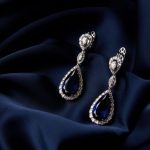 To create strong and attractive images, you’ll be able to feature complementary colors by placing your Jewelry on fascinating and colored surfaces. Do that amazing option and see the sort of images you’ll be able to come up with after you use spectral color together with your pieces of Jewelry.
To create strong and attractive images, you’ll be able to feature complementary colors by placing your Jewelry on fascinating and colored surfaces. Do that amazing option and see the sort of images you’ll be able to come up with after you use spectral color together with your pieces of Jewelry.
Using a solid color or several reminders the identical color will instantly help make your Jewelry more attractive. But remember, try and keep it to a minimum and avoid using too many shades which will distract viewers’ attention far from the most subject. Neon Apatite Stone Photography is going to make you crazy sooner or later.
-
Simple is Real-
The best thanks to featuring the total glory in a very piece of Jewelry and make it extraordinary is to photograph it on its own. this can be particularly true for pieces that have already got lots happening in terms of color, sparkles, and its design. rather than muddying the shot with other Jewelry or a hypothetical distracting background, Try placing the Jewelry piece on top of a wooden table, a clear white or reflective surface, or just concentrate on key features to exclude the remainder of the thing while you employ a good aperture to blur out the background.
-
Creativity is Intelligence in Jewelry Photography-
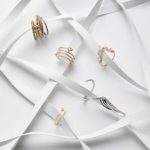 Being a touch more creative together with your style and Jewelry after all an initiative to elaborate its creative and presentation side. If you wish to feature interest to your shot, you’ll be able to plow ahead, creativity has no limits. Just be warned that placing too many features in your frame can confuse your viewers from that specialize in the wonder of the Jewelry.
Being a touch more creative together with your style and Jewelry after all an initiative to elaborate its creative and presentation side. If you wish to feature interest to your shot, you’ll be able to plow ahead, creativity has no limits. Just be warned that placing too many features in your frame can confuse your viewers from that specialize in the wonder of the Jewelry.
As a general rule out photography, keep it simple and mind how the background, color, and other elements interact together with your Jewelry. They ought to always complement the Jewelry and make it personalized.
Keynote mistakes to avoid while photographing Jewelry-
- Avoid excessive aperture
- Unnecessary props
- Low white balance
- Shaky and blur images
- Unprepared and smudged products
- Complex and overfilled background
- Reflection and an excessive amount of reflection
- Out of focus images
- Uneven Photoshop
